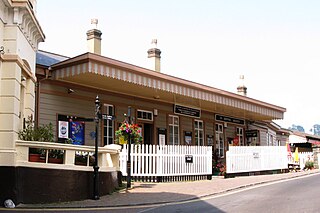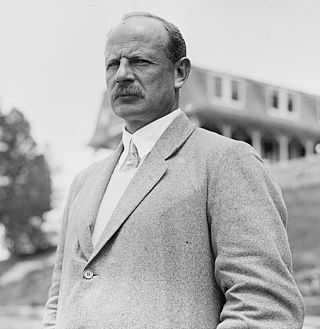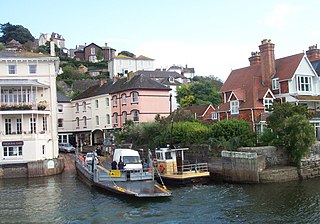
Dartmouth is a town and civil parish in the English county of Devon. It is a tourist destination set on the western bank of the estuary of the River Dart, which is a long narrow tidal ria that runs inland as far as Totnes. It lies within the South Devon Area of Outstanding Natural Beauty and South Hams district, and had a population of 5,512 in 2001, reducing to 5,064 at the 2011 census. There are two electoral wards in the Dartmouth area. Their combined population at the above census was 6,822.

Rowing, sometimes called crew in the United States, is the sport of racing boats using oars. It differs from paddling sports in that rowing oars are attached to the boat using oarlocks, while paddles are not connected to the boat. Rowing is divided into two disciplines: sculling and sweep rowing. In sculling, each rower holds two oars—one in each hand, while in sweep rowing each rower holds one oar with both hands. There are several boat classes in which athletes may compete, ranging from single sculls, occupied by one person, to shells with eight rowers and a coxswain, called eights. There are a wide variety of course types and formats of racing, but most elite and championship level racing is conducted on calm water courses 2 kilometres (1.2 mi) long with several lanes marked using buoys.

Eights Week, also known as Summer Eights, is a four-day regatta of bumps races which constitutes the University of Oxford's main intercollegiate rowing event of the year. The regatta takes place in May of each year, from the Wednesday to the Saturday of the fifth week of Trinity Term. Men's and women's coxed eights compete in separate divisions for their colleges.

The River Dart is a river in Devon, England, that rises high on Dartmoor and flows for 75 kilometres (47 mi) to the sea at Dartmouth.
Boat racing is a sport in which boats, or other types of watercraft, race on water. Boat racing powered by oars is recorded as having occurred in ancient Egypt, and it is likely that people have engaged in races involving boats and other water-borne craft for as long as such watercraft have existed.
Kingswear is a village and civil parish in the South Hams area of the English county of Devon. The village is located on the east bank of the tidal River Dart, close to the river's mouth and opposite the small town of Dartmouth. It lies within the South Devon Area of Outstanding Natural Beauty, and has a population of 1,332, reducing to 1,217 at the 2011 census.

The Dartmouth and Torbay Railway was a broad gauge railway linking the South Devon Railway branch at Torquay with Kingswear in Devon, England. It was operated from the outset by the South Devon Railway.

Charles Hayne Seale Hayne PC of Fuge House in the parish of Blackawton and of Kingswear Castle, Dartmouth harbour, both in Devon, was a British businessman and Liberal politician, serving as Member of Parliament for Ashburton in Devon, from 1885 until his death in 1903. He served as Paymaster-General between 1892 and 1895 in the Liberal administrations of William Gladstone and the Earl of Rosebery.
The Port of Dartmouth Royal Regatta is a regatta in the English county of Devon. The first recorded regatta was in 1822 and the regatta was formally established in 1834. It is based on the River Dart, in the town of Dartmouth, and the village of Kingswear opposite.
The Intercollegiate Rowing Association (IRA) governs intercollegiate rowing between varsity men's heavyweight, men's lightweight, and women's lightweight rowing programs across the United States, while the NCAA fulfills this role for women's open weight rowing. It is the direct successor to the Rowing Association of American Colleges, the first collegiate athletic organization in the United States, which operated from 1870–1894.

Guy Nickalls was a British rower who competed in the 1908 Summer Olympics as a member of the British eight that won gold, won 22 events at Henley Royal Regatta and won the Wingfield Sculls three times.

Brasenose College Boat Club (BNCBC) is the rowing club of Brasenose College, Oxford, in Oxford, England. It is one of the oldest boat clubs in the world, having beaten Jesus College Boat Club in the first modern rowing race, held at Oxford in 1815. Although rowing at schools such as Eton and Westminster School Boat Club predates this, the 1815 contest is the first recorded race between rowing clubs anywhere in the world.

The Dartmouth Lower Ferry is a vehicular and passenger ferry which crosses the River Dart in the English county of Devon. It is one of three ferries that cross the tidal river from Dartmouth to Kingswear, the others being the Higher Ferry and the Passenger Ferry. The 630-mile (1,010 km) long South West Coast Path crosses the Dart on either the Lower or Passenger ferries.

Charles Edward Courtney was an American rower and rowing coach from Union Springs, New York. A carpenter by trade, Courtney was a nationally known amateur rower. Courtney never lost a race as an amateur and finished a total of 88 victories.

Exeter College Boat Club (ECBC) is the boat club of Exeter College, Oxford, England. The club trains on the Thames on the Isis stretch in Oxford and at Abingdon, Oxfordshire.
The River Dart Steamboat Co Ltd (RDSC) and its predecessors, the Dartmouth Steam Packet Company and the Dartmouth and Torbay Steam Packet Company, were the major ferry and excursion boat operators on the River Dart in South Devon for 120 years, until the company's demise in 1976. The company was famous for its distinctive paddle steamers, which were a familiar sight on the river until the late 1960s.

NCI Froward Point is a busy National Coastwatch Institution (NCI) lookout station at Inner Froward Point at the easterly side of the mouth of the River Dart two miles by coast path from Kingswear in Devon in England. Its twin duties are to maintain an hours of daylight watch over the local coastal area and the South West Coast Path on whose route it lies. With some significant blind spots because of the coastline, NCI Froward Point covers the coastline from Start Point in the West towards Brixham in the East.

Trinity College Boat Club (TCBC) is the rowing club of Trinity College, Oxford in Oxford, United Kingdom. The club's members are students and staff from Trinity College and, occasionally, associate members from other colleges.

Sir John Henry Seale, 1st Baronet (1780–1844) of Mount Boone in the parish of Townstal near Dartmouth in Devon, was a Whig Member of Parliament for Dartmouth in 1838. He was created a baronet on 31 July 1838. He owned substantial lands in Devon, mainly at Townstal and Mount Boone. Together with the Earl of Morley of Saltram House near Plymouth, he built several bridges in Dartmouth, most notably the Dart crossing. Arthur Howe Holdsworth's, the previous Member of Parliament in Dartmouth, influence over the pocket borough of Dartmouth ceased after the 1832 Reform Act and subsequently he was in competition for that parliamentary seat with John Seale, who won the seat.

John Fownes (1661-1731) of Kittery Court in the parish of Kingswear and of Nethway in the parish of Brixham, both in Devon, was a British landowner and politician who sat in the House of Commons from 1714 to 1715.














